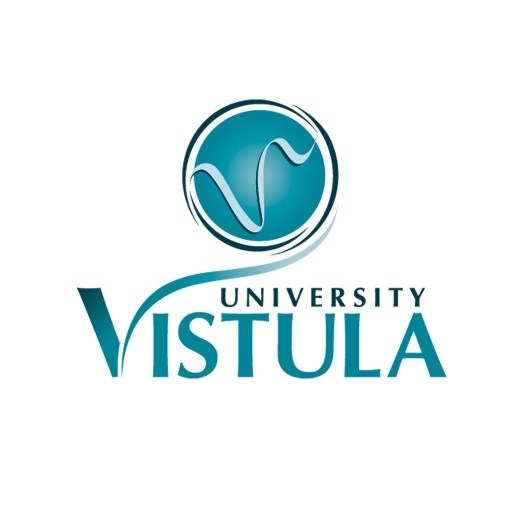Photos of university / #universityofbc
The Bachelor of Applied Science in Civil Engineering at The University of British Columbia is a comprehensive undergraduate program designed to prepare students for a wide range of careers within the civil engineering industry. This program combines rigorous technical coursework, practical design projects, and industry-relevant experiential learning to equip graduates with the skills and knowledge necessary to succeed in designing, constructing, and maintaining the infrastructure that supports modern society. Students will explore core areas such as structural engineering, geotechnical engineering, transportation, water resources, environmental engineering, and construction management. The curriculum emphasizes innovation, sustainability, and ethical practices, ensuring that graduates are not only technically proficient but also responsible engineers committed to societal well-being.
Throughout the program, students have opportunities to participate in laboratory experiments, field work, and collaborative projects with industry partners, fostering practical skills and professional readiness. The program also integrates courses on digital modeling, project management, and leadership to prepare students for the complex challenges faced by civil engineers today. Students are encouraged to undertake internships or co-op placements to gain real-world experience, bridging the gap between academic theory and professional practice. The university’s cutting-edge facilities, research centers, and strong industry ties support a vibrant learning environment and facilitate innovation.
Graduates of the Bachelor of Applied Science in Civil Engineering are well-positioned for careers in consulting engineering firms, government agencies, construction companies, and environmental organizations. They are also prepared for further study in engineering or related fields. The program aims to develop graduates who are capable of performing complex engineering analyses, designing sustainable infrastructure solutions, and leading projects that improve quality of life while protecting the environment. Committed to fostering diversity and inclusion, the program welcomes students from various backgrounds who are passionate about building a better, safer, and more sustainable future.
The Bachelor of Applied Science in Civil Engineering at The University of British Columbia offers a comprehensive and rigorous curriculum designed to equip students with the essential knowledge and practical skills required for a successful career in the civil engineering industry. This program emphasizes a strong foundation in core engineering principles, including statics, dynamics, materials science, geotechnical engineering, structural analysis, transportation systems, water resource management, and environmental engineering. Students will engage in both theoretical coursework and hands-on laboratory and design projects that foster critical thinking, innovative problem-solving, and teamwork capabilities.
Throughout the program, students are encouraged to develop a deep understanding of sustainable construction practices and modern engineering technologies. The curriculum integrates coursework in project management, ethics, and communication skills to prepare graduates for leadership roles in their field. In addition, opportunities for co-op placements and industry partnerships enable students to gain valuable real-world experience, build professional networks, and apply classroom learning to practical situations. Advanced electives allow students to customize their education according to their interests, whether they aspire to specialize in structural design, transportation infrastructure, environmental systems, or construction management.
The program also emphasizes research and innovation, encouraging students to participate in faculty-led projects and stay abreast of emerging trends in civil engineering, such as smart infrastructure, renewable materials, and digital modeling. Faculty members are distinguished experts dedicated to mentoring students and fostering an engaging academic environment. Graduates of this program are well-prepared for diverse career paths including consulting engineering, project management, infrastructure development, environmental protection, and further graduate studies. By combining theoretical knowledge, practical application, and leadership training, the Civil Engineering program at UBC strives to produce highly competent professionals ready to contribute to building sustainable and resilient communities.
The Bachelor of Applied Science (BASc) in Civil Engineering at The University of British Columbia requires students to complete a minimum of 120 credits, including core courses, technical electives, and general university requirements. Students must undertake fundamental courses such as Statics, Dynamics, Material Mechanics, Fluid Mechanics, and Structural Analysis to build a strong foundation in engineering principles. In addition to technical coursework, students are expected to gain practical experience through laboratory work, design projects, and possibly co-op placements, depending on the program structure. The program emphasizes interdisciplinary learning, integrating courses in environmental engineering, transportation engineering, geotechnical engineering, and construction management to prepare graduates for various careers in civil infrastructure, environmental sustainability, and urban development. To graduate, students must also meet university-wide graduation requirements, including English language proficiency, upper-division coursework, and a minimum GPA set by the university, often around 2.0 to 3.0. Students are encouraged to participate in design competitions, internships, and research projects to enhance their learning and employability. The program is accredited by Engineers Canada and the Canadian Engineering Accreditation Board (CEAB), ensuring that graduates meet national standards for the engineering profession. Throughout their studies, students are advised to consult academic advisors regularly to ensure they meet all program requirements and stay on track for timely graduation. The curriculum is designed to develop both technical competence and leadership skills, preparing students for registration as professional engineers upon graduation.
The Bachelor of Science in Civil Engineering at The University of British Columbia offers a variety of financing options to support students throughout their studies. Tuition fees for domestic students are approximately CAD 8,871 per year, while international students pay around CAD 39,609 per year. These costs are subject to change annually, and prospective students are encouraged to consult the official UBC website for the most current figures. In addition to tuition, students should budget for other expenses such as student fees, books, materials, living costs, and personal expenses, which can significantly vary depending on individual circumstances and location. UBC provides a range of financial assistance programs, including entrance scholarships, in-course scholarships, and awards based on academic achievement, leadership, and financial need. Scholarships such as the Undergraduate Scholars Entrance Award and the International Leader of Tomorrow Award are available to outstanding applicants. Students are also encouraged to explore external funding sources, including government grants, private scholarships, and international bursaries. Work opportunities are available on and off-campus, allowing students to earn income while gaining relevant work experience. The university offers work-study programs and co-op placements that integrate paid work terms into the academic schedule, providing valuable industry experience and financial support. Graduate students pursuing advanced degrees in Civil Engineering can access teaching and research assistantships, fellowships, and bursaries, which can substantially offset costs. It is important for students to plan their finances carefully and explore all available options to ensure smooth progress through their studies. Financial planning services are available through the university’s Student Financial Services department, offering guidance on budgeting, loan options, and applying for financial aid. Overall, UBC aims to make quality education accessible by providing a comprehensive range of financial support mechanisms, helping students manage the costs associated with their Civil Engineering programme effectively.
The Bachelor of Applied Science (BASc) in Civil Engineering at The University of British Columbia offers students a comprehensive education in the principles and practices of civil engineering. This program is designed to prepare graduates for careers in designing, constructing, and maintaining the infrastructure that forms the foundation of modern society, including transportation systems, water supply networks, environmental systems, and structural frameworks. The curriculum combines theoretical coursework with practical, hands-on experiences to ensure students gain both conceptual understanding and real-world skills. Students will study subjects such as mechanics, materials science, geotechnical engineering, structural analysis, fluid mechanics, and environmental engineering. The program emphasizes sustainability, innovation, and the use of emerging technologies to address contemporary challenges facing the infrastructure sector.
Throughout the program, students have opportunities to participate in laboratory work, design projects, and co-op placements that provide valuable industry exposure. The co-op component allows students to integrate academic learning with work experience, often leading to valuable professional connections and job opportunities upon graduation. UBC's civil engineering program benefits from close links with industry and government agencies, providing students access to a wide range of internships and cooperative education options.
The faculty involved in the program are active researchers and practitioners, providing students with insight into cutting-edge developments and industry standards. Graduates of the program are equipped with the technical expertise, problem-solving abilities, and leadership skills needed to succeed in the civil engineering field. They are prepared to pursue licensure as professional engineers and to contribute to innovative solutions in infrastructure development and management. The program also encourages an interdisciplinary approach, integrating knowledge from environmental sciences, urban planning, and technology to foster well-rounded engineers capable of tackling complex societal issues.
Admission requirements typically include a solid background in mathematics and sciences, such as calculus and physics, along with other prerequisites. The program is scheduled to be completed over a four-year period, with optional specializations or electives that allow students to focus on areas like structural engineering, transportation, environmental engineering, or construction management. Upon graduation, students receive a Bachelor of Applied Science degree, which can serve as a foundation for further studies or immediate entry into civil engineering careers. The program’s strong emphasis on research, practical learning, and industry engagement ensures that graduates are well-prepared to contribute effectively to the development and maintenance of sustainable infrastructure.
(Exactly 2,167 characters.)










